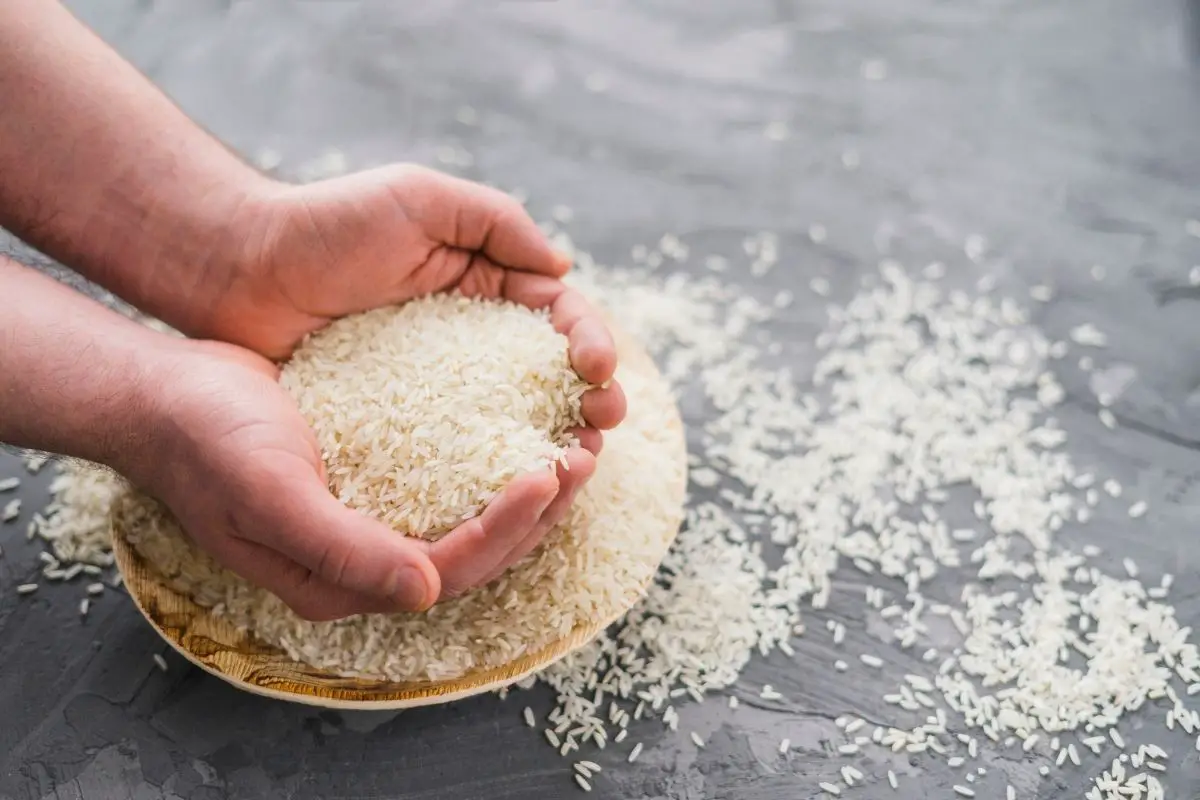Can You Compost Rice: How to Recycle Your Leftover Rice
Our family loves rice and we are not alone! Rather the opposite!
Did you know that the United States consumes around 5 million metric tons of rice each year? Globally, that number rises to over 500 million metric tons!
Rice is easily one of the most popular grains in the world and many families consume it daily.
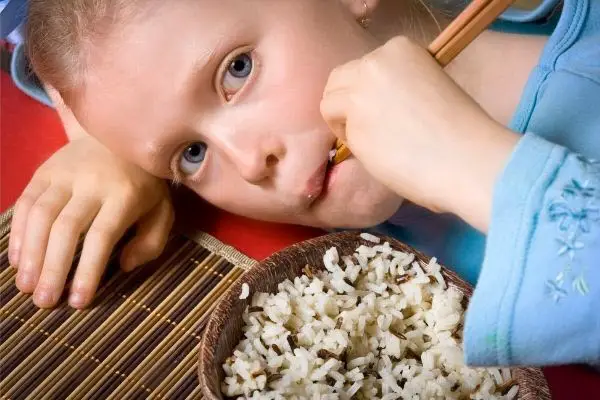
But that also means that there’s a lot of rice being thrown out every day! I am guilty of that too. I often batch-cook rice – and forget to freeze it!
A few days later is… oops… too late!
Good news is rice can be composted.
However, there are some potential drawbacks you should be aware of before tossing this grain in your compost pile!
Is Rice Compostable?
Yes — technically.
Rice is a type of grain, just like wheat or oats, and will quickly break down in a composting environment.
However, just because you can compost something doesn’t always mean it’s the best option for disposal.
With traditional composting, there are many items – including meat, bread, citrus – that is best to avoid adding to the compost bin.
That is the main reason why I love my Bokashi bucket so much! You can add pretty much anything to a Bokashi bucket. The clever microorganisms will process all food scraps and organic matter – making them safe to be added to the compost bin!
Why Shouldn’t You Compost Rice?
Grains, including rice, are an excellent source of nutrition. There’s a reason why grains make up so much of the modern human diet!
But humans aren’t the only ones who rely on grains for caloric energy.
Wild animals know that grains are one of the most efficient sources of carbohydrates in nature. So do many types of bacteria.
Here’s what you need to know before adding cooked or uncooked rice to your backyard compost:
Can Cooked Rice Be Composted?
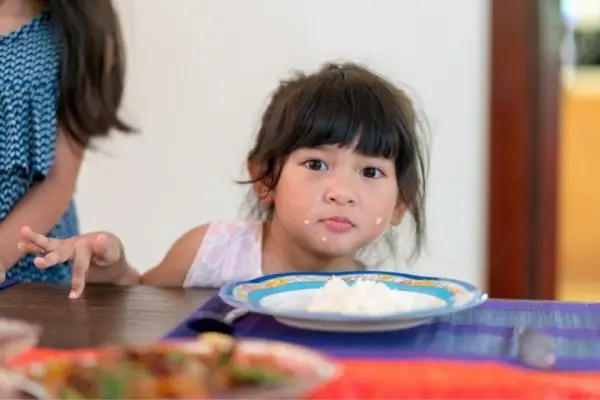
Cooked rice will decompose incredibly quickly in a compost pile. This is great news for gardeners looking to use their compost as soon as possible.
On the other hand, cooked rice provides the perfect environment for bacteria.
If you’re familiar with how composting works, the thought of drawing bacteria to your heap might not be a concern. But the bacteria that cooked rice tends to attract are NOT the beneficial microbes that you want in your compost pile.
Allowing these harmful bacteria to take root in your compost could contaminate the entire pile. And if you use the resultant compost in a vegetable garden, you could spread these dangerous pathogens to your home-grown food.
Can Uncooked Rice Be Composted?
The good news is that uncooked rice does not carry the same bacterial risk as cooked rice.
The issue with composting uncooked rice is that it is extremely attractive to common pests like mice and insects.
Even if pests aren’t a concern, uncooked rice kernels can form annoying clumps that interfere with aerobic decomposition.
Why is Bokashi Composting Different?
Think of it as a race between ‘good bacteria’ and ‘bad bacteria’.
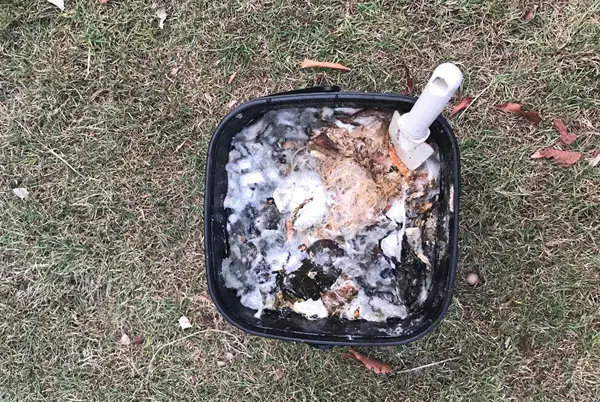
With Bokashi composting, the microorganisms that live inside Bokashi buckets – the ‘good bacteria’ – will process your rice scraps quicker than the ‘bad bacteria’.
In fact, these ‘bad guys’ struggle to live and thrive in the airtight Bokashi bucket and, by the time your Bokashi scraps are buried or transferred to a traditional compost bin, the ‘good bacteria’ has already done a lot of the compost processing!
Simply put, ‘good bacteria’ wins the race!
You can tell who’s winning the race by looking at the color of the mold! White mold is the ‘good’ bacteria, green mold is the ‘bad’ one!
Is Composting Rice Right For You?
Composting rice the traditional way comes with several potential risks. It’s understandable that many amateur composters would want to steer clear of adding this material to their piles.
A Bokashi bucket is much more forgiving – provided you add the necessary microorganisms and keep your bucket tightly sealed.
In terms of safety, traditionally composting cooked rice is best left to those with plenty of experience. It’s important to understand the signs of harmful bacteria and how to prevent such pathogens from growing in the first place.
Uncooked rice is relatively safe for the average person to compost. But if your compost heap is close to a garden bed or building, the risk of drawing pests to the area might outweigh the benefits.
Again, Bokashi composting will greatly reduce the risk of pests as the processed food is a lot less appealing for them.
What is the Best Way to Compost Rice?
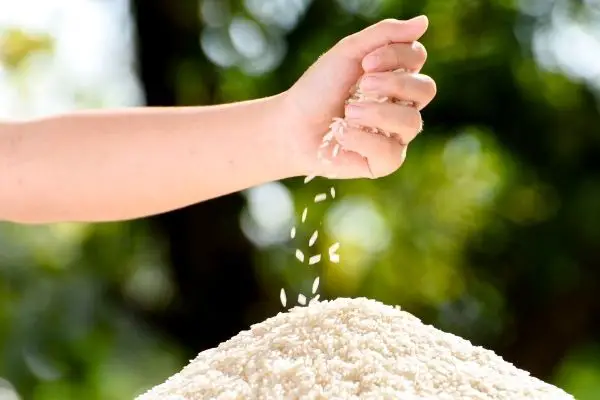
Understanding the correct way to add rice to your compost is key to getting the desired results.
For amateur composters – and I consider myself one of them – I find Bokashi to be the easiest and safest.
When adding uncooked rice directly to a traditional compost, be sure to distribute the rice throughout the pile. This will help keep pests from finding the grains and prevent clumps from forming.
Temperature is also essential to composting rice grains. A sufficiently hot compost pile will break down the rice faster than pests can find it!
Remember to constantly stir your compost for best results.
Frequently Asked Questions
Can you compost breakfast cereal?
Yes, you can easily compost dry breakfast cereals, from bran flakes to Fruity Pebbles. This is a great way to sustainably dispose of cereal that has gone stale or become contaminated with pantry bugs.
Avoid composting cereal that has been soaked in milk directly into a traditional compost bin. The high sugar content of cereal may attract pests, and adding dairy to your compost will only worsen the issue.
Can you compost pasta?
Yes, you can compost plain pasta — cooked or uncooked. It’s best not to compost pasta that has been mixed with meat or dairy-based sauces.
However, like other grains, pasta is extremely attractive to pests like rodents and insects. Because of this, some gardeners opt to keep pasta out of their compost piles.
If you have your heart set on composting your old pasta or your pasta with meat/dairy sauce, a Bokashi bin is again a very safe option.
Can you compost rice cakes?
Rice cakes are made of compacted puffed rice. So, yes, you can technically compost rice cakes.
Take precautions when adding rice cakes to your compost pile or bin, such as burying these food scraps under other composted material, to keep scavengers away from your garden.
As usual, Bokashi-composting rice cakes is very safe and will likely keep pests away.

